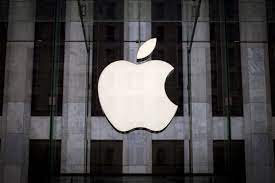NEW YORK (Reuters): The massive rally in Apple’s shares is forcing some fund managers to revisit a thorny dilemma: they may not own enough of the stock.
Apple’s share price has soared 49% so far this year, ballooning its weight in stock indexes to record levels and pushing its market capitalization over $3 trillion.
The company’s weighting in the S&P 500 has swelled to 7.6%, the biggest of any one stock in the history of the benchmark index, according to S&P Dow Jones Indices.
That hefty weighting means moves in Apple’s shares have an outsized influence on index performance.
Yet many investors hold allocations of Apple that are smaller than its relative weighting in indexes, whether it’s due to the desire for portfolio flexibility, worries over owning too much of any one position and limitations imposed by the rules of their own funds.
If shares of Apple keep rallying, that could hurt the results of active fund managers, who strive to beat indexes such as the S&P 500 or Russell 1000.
The issue has taken on additional urgency this year, as the market’s gains are being led primarily by a handful of megacap companies such as Apple, Microsoft and Nvidia, whose shares have outperformed.
“If you’re an active manager, one of the issues is it’s hard to own that much of one name. You are taking on more and more risk,” said Todd Sohn, technical strategist at Strategas.
“Because they are such heavy weights within the benchmarks, it becomes really challenging to outperform.”
Of 418 U.S. broad market funds tracked by Morningstar, only 26 held a greater weight in Apple than the stock’s weight in the S&P 500, according to their most recent regulatory filings.
The lower allocations to Apple and other stock market winners may be hurting their performance. Only 20% of actively managed mutual funds with broad U.S. market exposure have outperformed the S&P 500 year-to-date as of June 28, according to Robby Greengold, strategist at Morningstar.
Only 6% of active large-growth funds around in 2013 outperformed the category benchmark through 2022, the firm’s data showed.
Greenwood Capital, which has $1.4 billion in assets under management, counts Apple as one of its top five holdings, said chief investment officer Walter Todd.
But risk management rules at the South Carolina firm prohibit putting more than 5% into any one stock; that means the firm is underweight Apple compared to the S&P 500, to which Greenwood funds benchmark their performance.
The firm likes Apple’s stock fundamentals, so “it’s not that we are rooting for it to go down,” Todd said. “We just think there are other names that have the opportunity to do better.”
The cost of limiting Apple shares may be particularly high for fund managers this year, given the stock’s swelling weight in indexes.
Apple’s weighting in the S&P 500, for example, is bigger than the entire 37-stock consumer staples sector, which was last at a weight of 6.7%.
Some investors are happy to hold hefty positions in the stock.







